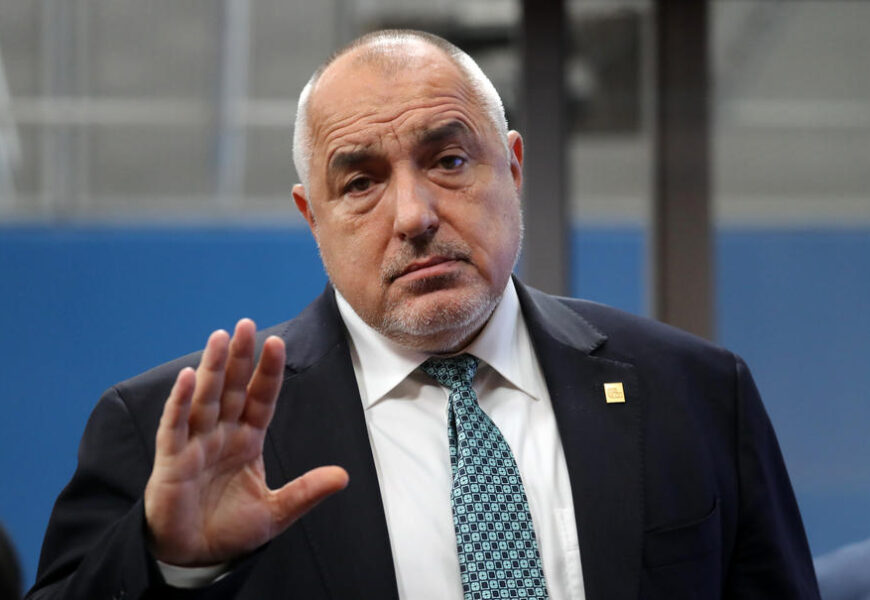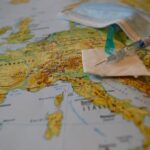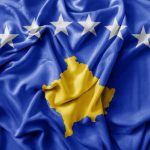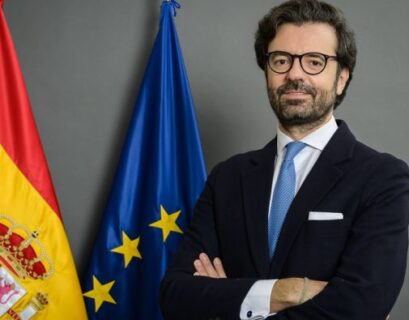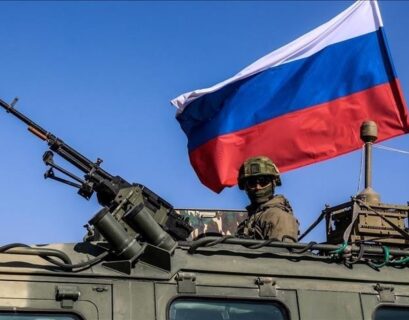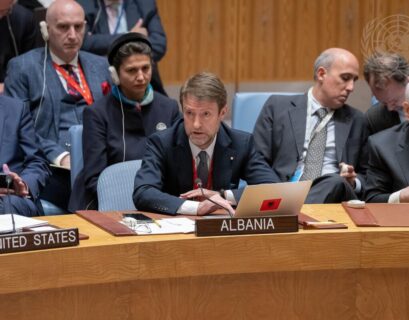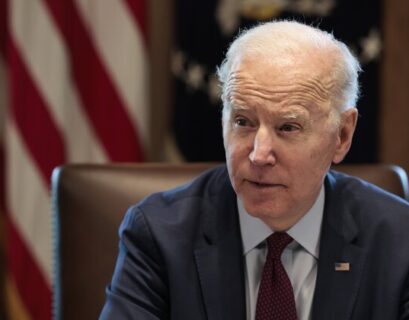by Amalia Koleka
“The future is certain; it is the past that is unpredictable” – Soviet joke.
If we were to believe Denko Maleski[1], North Macedonia’s ex-foreign minister, left unmediated the Macedonian-Bulgarian dispute could turn into bigger crisis than the naming bone of contention North Macedonia went through with Greece, one keeping record for the longest lasting EU diplomatic dispute. The vetoing apparatus has become a dysfunctional accession mechanism, frequently used to support geo-strategic national interests, diverging from its true intent of realistically assessing the potential of non-member states for integration. What are the chances that this friction persists, and what does it mean for intra-Balkan relations and EU credibility in the region?
The Bulgarian blockade of North Macedonia on November 17th of 2020 came as a real shock to some, but tensions between the two countries had been broiling since the late summer, accentuating their even present simmering aversion. Even after Bulgaria sent a memorandum to the EU accusing North Macedonia has of not having ratified the 2017 Friendship agreement, North Macedonian Prime Minister Zoran Zaev still pushed for collaboration. Experts clearly saw the rigid stance of Bulgaria on the matter, and highlighted its strong position against ‘anti-Bulgarian state-sponsored propaganda’ and ‘ideological and historical legacy of communist Yugoslavia’, but no one wanted to believe that Bulgaria would actually block North Macedonia’s accension process. Once again, North Macedonia will be losing precious time trying to successfully juggle the hot potatoes of historical revisionism and intransigent neighbors.
The Bulgarian veto directly touches upon matters of national identity and self-identification. Bulgaria negates Macedonian as a separate language (and asks instead for it to be labeled as ‘the official language of Macedonia’) hinting that Macedonian is simply a Bulgarian dialect. Bulgaria also calls for the correction of statue plaques and history textbooks saying historical figures (like Gotse Delcev) are Macedonian, claiming they are in fact of Bulgarian descent. Finally, Bulgaria demands that North Macedonia give up any assertion it might have on the Macedonian minority in Bulgaria. The Greek dispute touched on the sensitive matter of the country’s name, but Bulgaria’s demands are more poignantly and unambiguously focused on matters of national identity. The fact that Macedonians must admit that their language is merely a dialect of Bulgarian and that many (admittedly shared) historical figures are wrongly portrayed as Macedonian means reconfiguration of collective history and national identity, which is no light matter.
It’s Bulgaria’s third condition, minority rights, which is telling. Despite making considerable progress with minority issues by officializing Albanian as a national language and raising political representation of ethnic Albanian Macedonians, North Macedonia’s impressive improvement, has largely gone unnoticed; much more attention is captured by Bulgaria’s full-frontal attack on what constitutes Macedonian language and history.
Bulgaria’s own treatment of ethnic minorities is rarely mentioned on the other hand. In 1992 the Bulgarian census counted 10,830 individuals as part of the Macedonian ethnic group, a figure which halved by 2001, and drastically decreased again by 2011 with just 1,654 individuals declaring themselves as Macedonian[2]. In 2011 particularly, the Bulgarian census only permitted respondents to classify themselves into three ethnic groupings, namely Bulgarian, Turkish and Roma. In its 2014 report, the Council of Europe’s Advisory Committee of the Framework Convention for the Protection of National Minorities criticized this categorization as restrictive and one that discourages individuals right to self-identification[3]. The treatment of the Macedonian minority in Bulgaria is therefore non-existent, as Bulgaria itself does not officially recognize Macedonians as a minority.
While Bulgaria’s minority condition to North Macedonia in regards to accension talks is paradoxical, there is logic to it. Bulgaria wants to rectify its (non-existent) position on the Macedonian minority as legitimate – the only problem is that this position is bellicose, and goes against the much-praised multiculturalist logic promoted by the EU.
BULGARIAN ACTIONS
Just a year and some months prior to Bulgaria’s blockade, on August 1rst 2019, the two-year anniversary of the 2017 Treaty of Friendship, Good-neighborliness and Cooperation, Bulgarian Prime Minister Boyko Borissov explicitly stated that he ‘didn’t even want to think about us allowing a blockade of North Macedonia’s European integration’ because ‘if we reach such a point, we would be laughed at in the European Union’.[4] Fast forward to 17 November 2020, and the Bulgarian PM might have spoken too soon.
Bulgarian officials claim North Macedonia has not complied by the conditions of the 2017 Friendship Agreement. This agreement encompasses broad cooperation agendas for trade, tourism and infrastructure. Under Article 8, the treaty specifies the creation of a “Joint Multidisciplinary Expert Commission for Historical and Education Issues” which reviews ‘the objective and scientific interpretation of historical events[5]’. The two countries also have the opportunity to ‘organize joint celebrations of shared historical events and personalities’ upon mutual agreement.
Many claim Bulgaria’s veto is an electoral ploy. Huge protests have been taking place since July, and are still ongoing – protesters voiced discontent against political elites and rampant corruption in the country. Identity politics are ever present in the region, and nationalist rhetoric can surely provide increased support of voters. Vetoing North Macedonia can divert protesters attention and simultaneously win back some of their support, much needed during the coming election. However, the problem is that ethno-nationalist politics make for volatile publics. In 2019, only 15% of Bulgarian citizens opposed North Macedonia’s modern history narratives, a miniscule amount compared to 80% in 2020. [6] Although it is noticeable that North Macedonian and Bulgarian citizens are becoming culturally closer, for example through literature and film[7], political elites are manipulating the salience and valence of identity, from shared, to divided and hostile.
The Bulgarian government has run the risk of being frowned upon by the EU in order to both divert its protesters’ attention and gain their votes, but protests and criticism from the public have not subsided, and the EU is displeased to say the least. Using the veto to incite nationalism and gain traction with hard-liners is certainly a piece of the puzzle, but not the whole of it. Historical disagreements between the two countries have deep roots and are no trivial issue.
MACEDONIAN RE-ACTIONS
Although North Macedonian Prime Minister Zoran Zaev has given a number of contradictory statements, he mainly asserted a diplomatic and amicable position, which backfired at home. Sticking to his belief the countries could solve all issues, Zaev went as far as saying they were lucky Gotse Delcev, the hero now being tugged by both countries, much like Alexander the Great was with Greece, “exists, otherwise we would have to invent him!”, pointing to shared history as a bridge of unity and cooperation rather than division and spite.
His diplomatic stance has won Zaev points in the international arena, but it came with a high political cost at home, some calling it political suicide. Zaev’s very first responses, which emphasized the need for negotiation and fulfilling Bulgaria’s conditions as soon as possible, were labeled by the North Macedonian public as ‘spineless’ and used by his opposition to launch political campaigns against him.
Opposition leaders have called for parties to create a coalition against Zaev on the rationale that he is ‘selling the nation’. Apart from his political opposition, citizens also initially revolted against his immediate readiness to negotiate. Elderly citizens who still remember the second World War, for example, were in disbelief of the PM’s remark that Bulgarians were ‘not occupiers, but administrators’ during the war, and came forth with testimonials of Bulgarians brutality at the time. What truly rubbed a portion of the North Macedonian public the wrong way are Zaev’s tame words in an interview with BGNES Bulgarian news media. His resolution-oriented approach caused some North Macedonians to feel betrayed and his opposition to take advantage and label Zaev as a ‘traitor’.VMRO-DPMNE leader Hristijan Mickoski organized mass protests in North Macedonian cities and has urged parties from both ends of the political spectrum to join forces against Zaev[8].
Former SDSM party leader Vlado Buckovski on the other hand, has defended PM Zaev’s statements, saying that “In my opinion, he is honestly fighting, with all his might, for our European future”[9]. The PM’s high priority on avoiding a deadlock has not subsided, but on December 12th he adopted a sterner tone and asserted that “Bulgaria’s position is completely irrational and offensive to the Macedonians and our entire nation”[10]. The North Macedonian PM also added that the nature of the Bulgarian claims is anti-European.
Zaev’s stance has won him points with the EU – immediately after the veto Michael Roth, German Minister of European Affairs, extended his support to North Macedonia and PM Zaev. On North Macedonia’s accension, Roth stated that ‘it is no longer about if, it is about when’ – as if it was ever about if! Macedonia’s EU accension process is proving evermore cumbersome and unrewarding, and whatever progress the country makes in governance, rule of law or economic development doesn’t seem to matter – instead, what seems sure, are obstacles.
EUROPEAN INACTIONS
This unfortunate development certainly wasn’t seen in good light from EU members. EU credibility in North Macedonia has suffered a severe blow after Bulgaria’s veto, but North Macedonia remains faithful to the process. Although Minister Roth has shown his support, critics classified the German EU presidency as a major failure in regards to enlargement. If Germany couldn’t prevent and solve the issues between these countries, how will Portugal, and later Slovenia, be able to?
The European circle shows more and more cracks, and without the proper reforms, it cannot hold as a model for Balkan countries much longer. Unanimous decisions can pave way for illiberal conduct, and decision-making structures can only be functional if all parties are on the same page in regards to values and principles. If this is not the case, they become infected with disagreements and are used to foster political interests of singular members. Albania should be cautious in its accession path because it has a number of unresolved bilateral issues. The Bulgarian veto does not mean much for Albania as effectively it does not stop the opening of its accession talks; opening negotiations is still a viable option for the country, although decoupled from North Macedonia. However, the situation is a telling sign for the future. There is the worry that tactless bilateral moves will become common now that the taboo of summoning national identity and history during the accession process has been broken.
The multiculturalism much preached by the EU is much falsely accepted by Balkans countries, who have a trying hand to deal with in ethnic terms. Multiculturalist logic is sincerely being tested out in North Macedonia, a country that made a shift in the past four years with regards to democratic governance and inclusion of minorities in the larger political sphere. However, no reward is coming to North Macedonia for its genuine effort, and ironically, it is being attacked by outer forces with the very weapon that it candidly and openly tries to dismantle within its own borders.
The Bulgarian veto is a worrying occurrence not only for Macedonia’s EU accesion process, but also for bilateral relations in the larger Balkans sphere. Even if this issue is solved, it is worrying to see how internal veto politics are being used by member states – “Bulgaria wants North Macedonia to say their language and ethnicity are fake, in the run-up to Bulgarian elections in March. And if that is solved? Well, we also have Czech, Cypriot, Dutch, and German elections next year”[11] comments journalist Ernest Bunguri, pointing at the current dysfunctionality of the veto system.
Old hatreds are still actively used in the Balkans from political entrepreneurs in order to manipulate public perceptions and exhibit political dominance. Regardless of how many cultural bonds there are between Bulgarians and Macedonians, history is weaponized by leaders. What remains to be seen is if the Bulgarian veto will have a destabilizing influence in bilateral relations between Balkan countries and how it will affect EU credibility in the region. Now that the taboo has been broken, getting into matters of history and identity that is, who knows what conflicts will emerge for soon-to-be member states.
The question remains whether the spirit
of right-wing nationalism is infiltrating the EU through its eastern members,
or it has always been present within the union and is currently being revamped.
However, the EU cannot let negotiations between the two countries fail and it certainly
cannot afford identity disputes to further impede the accension process of
North Macedonia. This is a lose-lose situation for both countries, politically
and economically. The veto will probably lead to a halt of infrastructure
projects between the only two capitals in Europe not connected by highways or
railways – projects which are characterized by sloth to begin with.
Amalia Koleka is a political psychologist. Her research interests include Identity Politics, Nationalism, Artificial Intelligence and Corruption in post-communist contexts. She recently graduated Utrecht University’s Conflict Studies and Human Rights program, and previously studied Psychology and Neuroscience at Maastricht University.
[1] https://balkaninsight.com/2020/11/19/north-macedonia-weighs-next-steps-after-bulgarias-eu-veto/
[2] https://minorityrights.org/country/bulgaria/
[3] https://minorityrights.org/minorities/macedonians-2/
[4] Boyko Borissov for Balkan Insight (August, 2019) https://balkaninsight.com/2019/08/01/north-macedonia-bulgaria-celebrate-friendship-treaty-anniversary/
[5] https://mfa.gov.mk/en/document/1712
[6] https://ecfr.eu/article/how-to-advance-a-european-solution-to-bulgarias-and-north-macedonias-dispute/
[7] https://balkaninsight.com/2020/11/13/wag-the-dog-bulgarians-see-through-govts-hard-line-on-north-macedonia/
[8] https://english.republika.mk/news/macedonia/mickoski-urges-the-left-and-the-right-to-unite-against-zaev/
[9]https://english.republika.mk/news/macedonia/zaev-cronies-issue-statement-of-support-for-his-new-positions-on-bulgaria-as-the-sdsm-party-fractures/
[10] https://www.euronews.com/2020/12/09/north-macedonia-pm-criticises-bulgaria-s-veto-of-eu-membership-talks
[11] https://euobserver.com/opinion/150405


